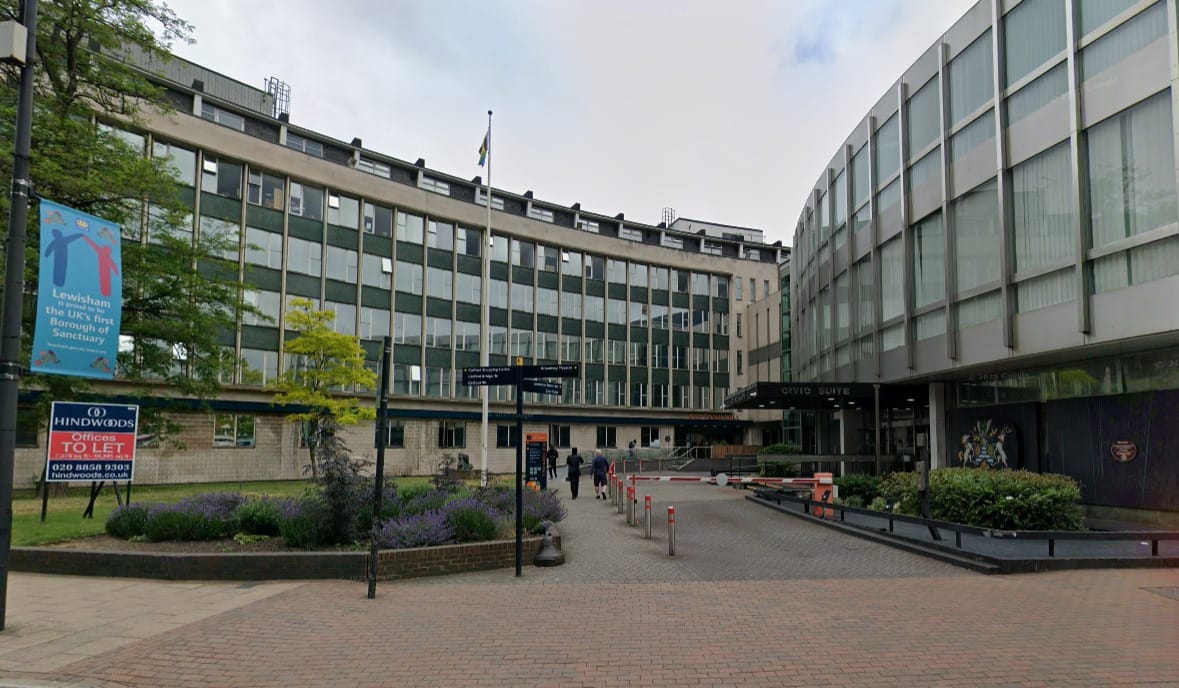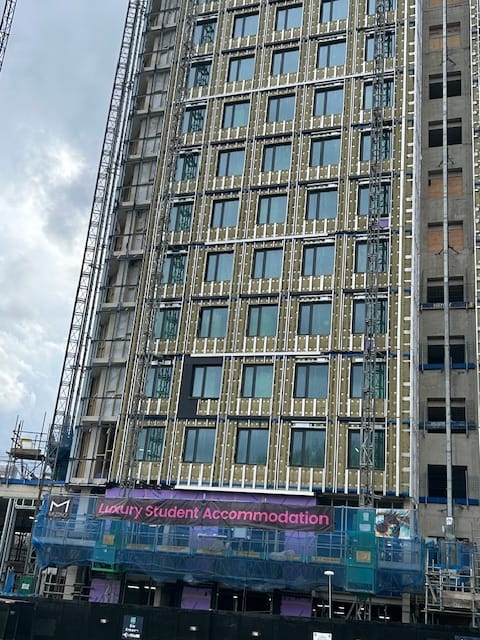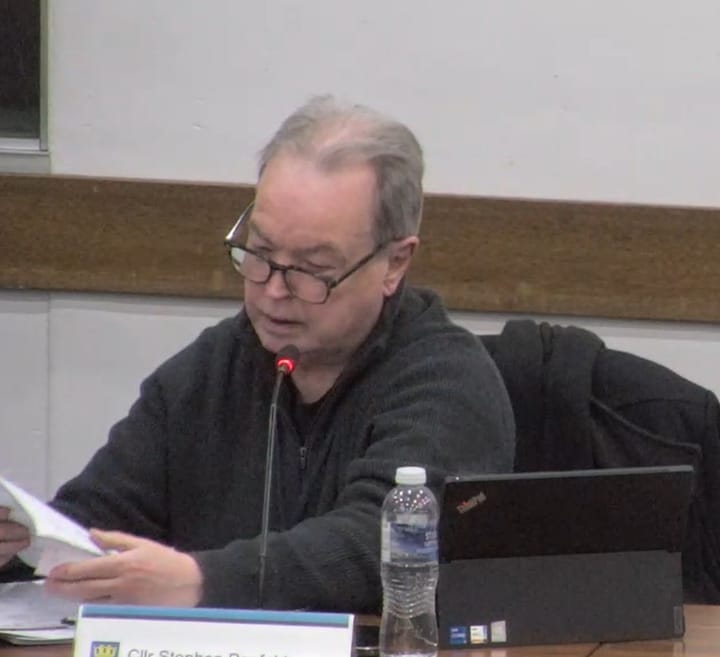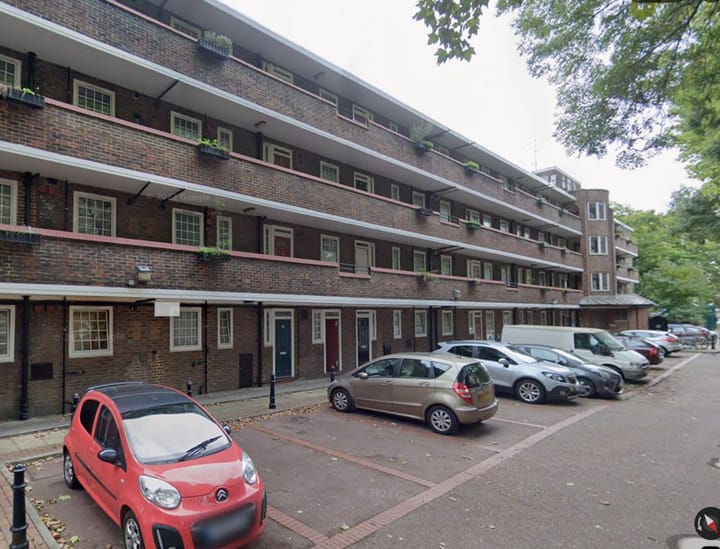Housing ombudsman finds widespread failings at Lewisham council
The housing ombudsman's special investigation details the council's failures in its management of housing repairs and complaints up until October 2024, and says the council is now "on a long road towards improvement".

A special investigation into Lewisham council has revealed widespread failings in how it manages housing repairs and complaints, with serious issues found in 92% of cases.
In one instance, a mother and two young children, one of whom is disabled and asthmatic, were forced to live with leaks, damp and mould for years despite repeated warnings.
In the report published on 7 October, the housing ombudsman details failures by the council, including poor communication, weak oversight of contractors and major delays tackling hazards that could be detrimental to residents’ health.
The watchdog found that nearly a quarter of homes in the borough fell below the Decent Homes Standard as of September 2024 – more than double the London average.
The investigation reviewed 28 cases between July 2024 and October 2024, which revealed nine incidents of “severe maladministration”, with the main causes relating to leaks, damp and mould.
A total of 3,295 cases were open at the end of September 2024, according to the ombudsman’s special report, which were reduced to 1,794 open cases at the end of July 2025.
In one reported case, a family and their six children were forced to live with a leak and subsequent mould, which had caused a hole to appear in the bathroom ceiling and raised concerns that it could collapse.
Lewisham council, the landlord, put a temporary board over the hole but gave no reassurance to the resident and offered no permanent solution to the leak, the investigation found.
The resident reported being scared while in her home of what might happen with the ceiling, and said she felt ignored by the landlord for its lack of action and communication, the report states.
In the incident involving a disabled and asthmatic child, their mother reported that the issues had resulted in both her children getting chest infections and sickness.
The council had sent three separate surveyors to the property in order to assess the hazards but each time the local authority had “failed to carry out the recommended repairs”, according to the ombudsman's report.
Following the third inspection, the surveyor described worsening conditions and the risk of a ceiling collapse but it took the landlord two months to arrange the works.
A resident with three vulnerable children, including one who had a life threatening brain tumour, had repeatedly contacted the council after it had failed to fix ongoing issues with damp and mould in the property.
The report found that the local authority took over 32 months to complete some of the extensive list of repairs needed, with follow up works on damp being “abandoned without explanation”.
The report identified a “poor culture” within the council’s housing service, either through the “tone of correspondence, a failure to prioritise repairs, provide updates on complaints or the landlord’s attitude”.
Council "on long road towards improvement"
In response to the findings, Lewisham council set up a Complaint Handling Improvement Plan (CHIP), which included guidance for staff.
However, the ombudsman raised additional concerns about the content of the guides, suggesting some of the guides “may make the organisation appear defensive” by alluding to residents “making up” complaints or the council “not being at fault”.
The council has since surveyed most of its housing stock and introduced reforms to improve repairs, data systems, and resident engagement. The housing ombudsman, Richard Blakeway, said the council “is on a long road towards improvement” but the leadership “realises the areas it needs to focus on”.
In a statement from the council, it acknowledged “the significant impact” its failings had on residents and said it had “taken decisive steps” to address the issues raised.
It also said that it is focusing on adhering to the new Awaab’s Law legislation, which comes into force on 27 October. It mandates that social landlords in England must investigate reported hazards like damp and mould within ten working days and take action on significant risks within five working days.
The statement adds: “Our repairs teams are completing more jobs per day and we have strengthened quality assurance processes, including post-repair inspections and regular contractor reviews. Waiting times for residents contacting us have fallen significantly, and we have recruited additional staff to improve responsiveness.
“We have also reduced open cases of damp and mould and improved our stock condition data through a survey of over 80% of the homes we manage. We are now strengthening performance management of our contractors and continuing to embed respectful, resident-first communication that includes awareness of vulnerabilities.
“We recognise that rebuilding trust takes time and sustained effort. We are committed to learning from complaints, embedding a culture of respect and accountability, and preparing for new legal standards.”
Sign-up for our free weekly newsletter - Salamander News in your inbox



